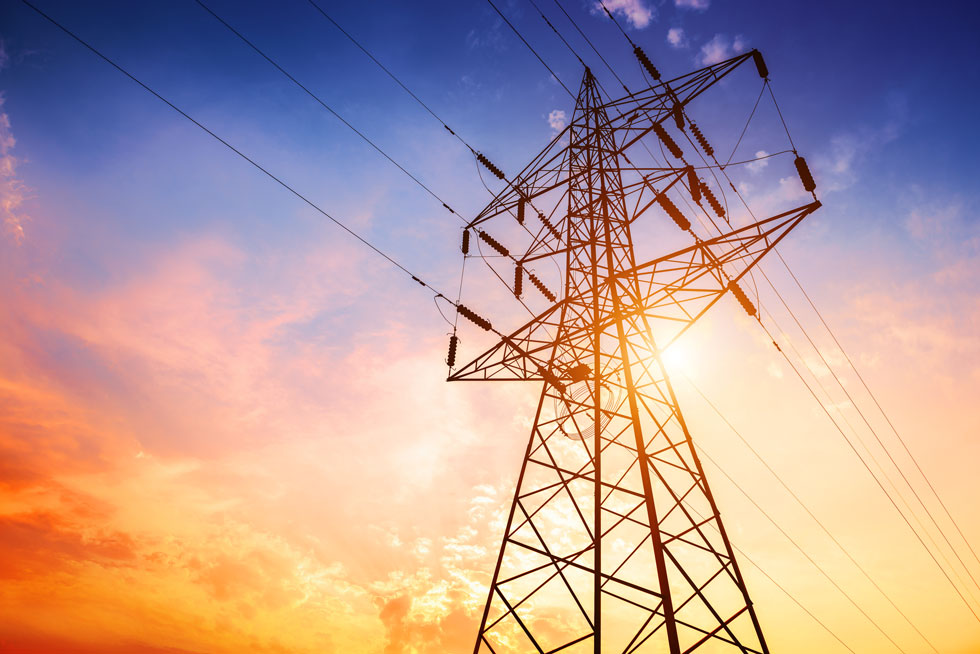How can my company procure energy?
When looking to procure energy, your business should look for an energy supplier that provides competitive pricing and a solution that meets your needs specifically. Many businesses have special requirements for their energy usage depending on the industry, and pairing up with the right supplier ensures greater efficiency.
What is energy procurement?
Energy procurement is the strategic process of sourcing your energy needs from a third party energy supplier or local distribution company (LDC).
What are the different energy procurement contracts?
There are three different types of energy procurement contracts: Fixed, indexed, and block and index.
What are the benefits of energy procurement?
The benefits of energy procurement are a lower risk of unforeseen charges, hidden fees, and costs, more informed load forecasting, a reliable source of fuel, and control over your fuel costs and types.
We often mention energy pricing and risk on this blog, but what exactly does that have to do with your company or facility? Essentially, businesses must source natural gas or electricity to power their operations. Energy procurement is the strategic process of sourcing your energy needs from a third party energy supplier or local distribution company (LDC).
It sounds simple, but there’s more to energy procurement than meets the eye, especially with everything going on in the world right now. The COVID-19 pandemic has impacted electricity prices, which are still recovering. Meanwhile, renewable energy is taking center stage and shunting fossil fuels into the wings. That means that, in the future, energy procurement will mainly revolve around renewable sources like wind, solar, and hydrogen. So, how can you make the right choices for your company? In this article, we’re explaining all the aspects of energy procurement, its benefits, and why it’s important.
How Do Companies Procure Energy?
When looking to procure energy, your business should look for an energy supplier that provides competitive pricing and a solution that meets your needs specifically. Many businesses have special requirements for their energy usage depending on the industry, and paring up with the right supplier ensures greater efficiency. Many people don’t realize they have a choice in where to buy natural gas and electricity, though it depends on the state. Shopping for the right vendor can be a powerful way to achieve savings against the utility rate.
Many U.S. states are opening their energy markets and allowing businesses to procure energy from private suppliers as opposed to only using utility company-monopolized rates. In such deregulated states, shopping for an energy provider is just like shopping for any service provider. During the shopping process, you can expect to deal with the following parties:
- The supplier: Suppliers are the private, wholesale, retail energy companies providing energy to customers. They serve as an alternative to utility company pricing and purchase energy directly from the marketplace. Expect them to offer competitively-priced, personalized energy solutions.
- The broker or consultant: Energy brokers or consultants bring buyers and sellers together. They work mainly with the energy procurement manager at your company to understand your goals so that a sound procurement strategy is put in place. The broker or consultant will then work with suppliers, with your best interest in mind, on how to achieve those initiatives. There is no requirement to work with a broker or consultant, you can work directly with a supplier if you choose.
- The utility company: The utility or LDC will be your default supplier. So if you choose to do nothing, the local utility will serve you for both supply and distribution. Most utilities do not have a preference if you are with a supplier or with them for supply, though some do try to incentive end users one way or another. For supply, utilities will charge a set rate for a certain period of time, usually 3 or 6 months, or a market based rate that changes every month.
Different Energy Contracts
There are many ways to structure today’s energy procurement contracts. However, there is no textbook formula to decide which contract will best fit your energy procurement needs. Multiple external factors, such as property specific demand requirements and market drivers influence the price you ultimately see on your electricity bill. Often times choosing a blended procurement plan, like the block and index pricing model, can provide the most benefit because it takes advantage of both ends of the market spectrum. Ultimately performance depends on timing, market influencers, contract type, and your benchmark for performance evaluation (rate $/kWh vs. cost $, performance vs. market or utility default, performance vs. budget, etc.). These are the main ones:
- Fixed Contract: In a fully fixed electricity pricing plan, the customer is locked into a set price lasting the duration of the contract, which can be long-term (e.g. as long as 3-5 years) or short-term (e.g. as short as 1 month). Regardless of market fluctuations, the price per kilowatt hour stays the same over the term (subject to adjustments due to changes in law, new legislation,or passed through regulatory components). Customers typically choose a fixed pricing plan to provide budget certainty and mitigate the monthly regional price risk (e.g. due to weather, pipeline constraints, generation retirements, etc.). It is especially beneficial in a market where prices are expected to continue rising. However, if the market prices fall during the term of your contract, you remain locked into your higher price and do not benefit from the lower market rates. The risk is buying at the top of the market when prices have been increasing (and you expect them to continue increasing), only to see the market sell off and prices decrease (but you’re stuck paying a higher fixed rate for the rest of your contract term).
- Indexed Electricity Pricing: A fully indexed electricity pricing plan is on the opposite end of the spectrum compared to a fully fixed contract. While all components are locked at a fixed rate in a fully fixed price, indexed pricing components are passed through to the customer at the market settlement prices. Depending on the timing and duration, index pricing tends to outperform fixed pricing (on a weighted $/kWh basis), but at the risk of blowing budgets due to pricing volatility (see Polar Vortex 2014 and early 2018) and subjecting the customer to potentially wild swings in pricing month-to-month.
- Block and Index: Between both ends of the spectrum is the “block and index” strategy, which combines elements of fixed pricing with index pricing. Fixed price “blocks” (i.e. hedges) are strategically placed during the contract term to hedge against (typically) volatile time periods (e.g. Jan/Feb in the northeast, on-peak hours in the summer in hot climates). Various sized blocks can be structured for on-peak, off-peak, or around-the-clock time frames so you can hedge as much or as little as you’d like. Hedges can also be layered in over time (similar to dollar cost averaging) until you eventually arrive at a 100% fixed price (while reducing the risk associated with single point in time purchasing). Some suppliers offer the ability to place hedges based on percentages of expected load (e.g. 25% of January’s load, rather than a 1.5MW block), also referred to load following block and index, which makes it easier to understand and implement from the client perspective.
Why Energy Procurement is Important:
Having the right energy procurement strategy in place can save you money by putting you in control of your company’s energy spend instead of letting the local utility company dictate it. Certain utilities even offer discounts for customers to leave. Operationally, suppliers will have the ability to consolidate all of your accounts and meters on to one invoice, keeping it straightforward for your accounts payable team.
The Benefits of Energy Procurement:
A well-planned energy procurement strategy can add certainty and dependability to your operations by:
- Minimizing the risk of unforeseen charges, hidden fees, and costs.
- Giving you more informed load forecasting based on research and monthly usage reports sent to you by your broker/consultant or supplier.
- Providing a reliable source of fuel — essential for industries like construction, manufacturing, transportation and healthcare.
- Letting you have proactive control over your fuel costs and types and financing and billing schedules.
Can Your Company Use an Energy Procurement Service?
Energy procurement services can benefit almost every type of business, since all companies have overhead energy costs. Using a utility procurement company helps you actively manage that spend. You can also get easy access to green energy, which, as mentioned above, is quickly becoming the norm. Some of the types of businesses that can use an energy management service include:
- Nonprofits
- Industrial and commercial organizations
- Governments
- Schools
How EnergyWatch Can Help:
It’s not always transparent for your company to know if it’s receiving value from the supplier, broker, or consultant they are currently working with. We suggest working with an individual or firm that is impartial, truly understands the markets and has your best interest in mind. An EnergyWatch consultant can help simplify the energy economics and identify potential opportunities for commodity savings.
The process of understanding and managing all the moving parts of energy procurement is complex and tedious, but it is necessary in order to make strategic energy purchases. Your energy procurement strategy needs to align with overall facility operations, and your energy rate consultant should understand how to structure contracts for demand-supply optimization. Proper structure and timing of electricity supply contracts can result in hundreds of thousands of dollars in additional supply-side savings / or cost avoidance. EnergyWatch makes it easier by providing market expertise and ensuring supply contract decisions are optimized for future operations at your facility. To learn more about how EnergyWatch assists with energy procurement, watch our webinar, Managing Supply Rates for 2021 Budgets.
 Top Sustainability Trends to Watch in 2025
Top Sustainability Trends to Watch in 2025

 Log In
Log In








